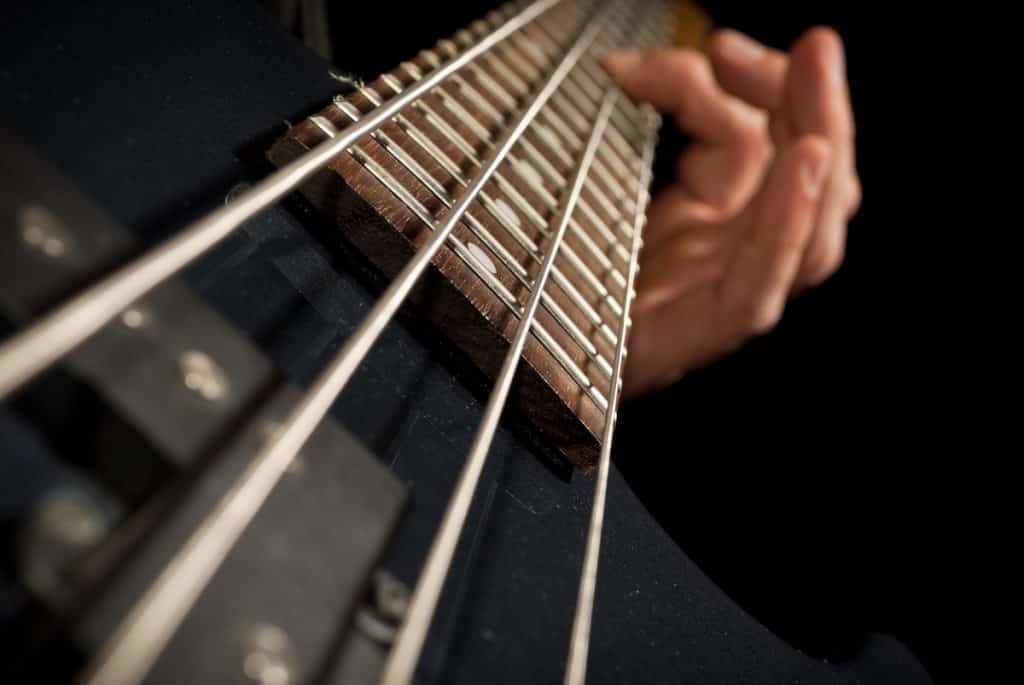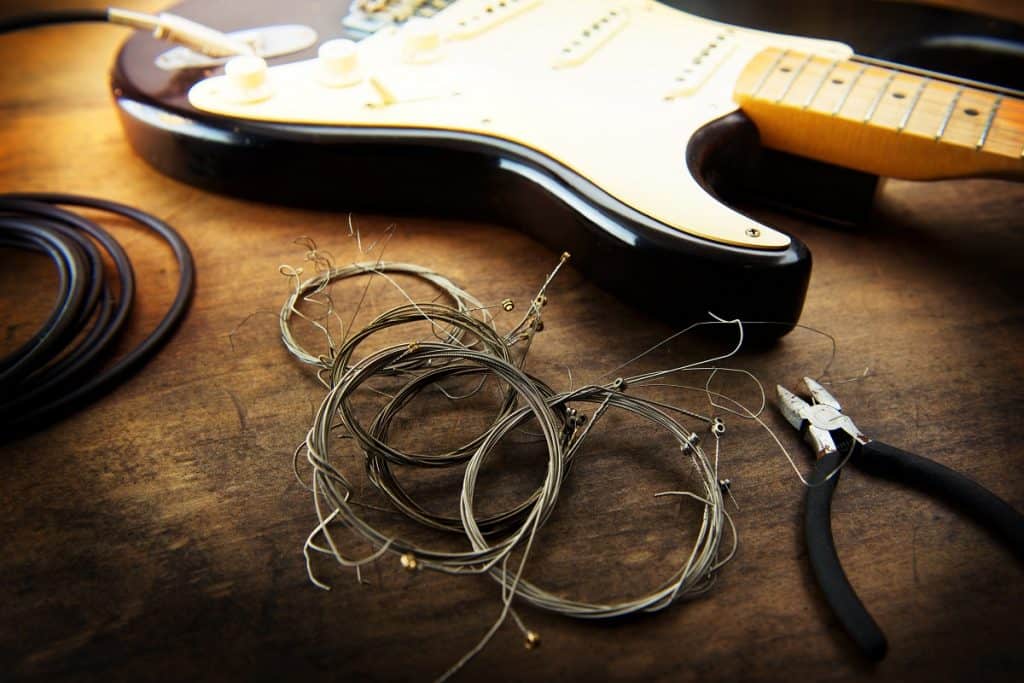Having lively, responsive strings is one of the most important elements in achieving a good guitar tone; but guitar strings have a finite lifespan, and having strings that are past their prime not only kills your guitar’s tone, it also tends to ruin your enjoyment in playing.
It is, therefore, no surprise that one of the most common questions asked by guitarists – especially those just starting out – is how often you should change guitar strings?

The simple answer is that it varies. There are a number of factors that govern how long a set of guitar strings will last, and remain playable, including:
- The quality of the string material
- How often they’re played
- The player’s hygiene
- How the strings are maintained
While there are no hard and fast rules about how often strings should be changed, there are some pretty good rules of thumb.
Why you need to change your strings?
There’s nothing like the feeling of new, lively strings to make you feel good about playing, but it’s really more than that. Old, dead strings are instantly recognizable. Not only do they not sound right, they are difficult to get in tune and won’t stay there. They are also more prone to breakage.
Factors like corrosion, rust and kinks will, over time, affect the durability of strings and break them down. Wound strings also can unwind with wear.
Inevitably, these things tend to happen at the worst time, like while you are in the middle of a performance, and the last thing an audience wants to see is you taking the time to restring your guitar.
This clip provides an excellent demonstration of how dead strings can negatively impact your guitar’s tone, and how new strings can instantly improve it.
Factors that affect lifespan

As previously noted, there are a number of factors that affect the lifespan of a guitar string. The most common culprit in breaking down a string is your own fingers. No matter how clean you keep your hands, oil sweat and grime from your fingertips transfer to the strings every time you play.
The best way to minimize this deterioration is to wipe down the strings after every time you play, no matter how short. This will keep them from rusting as quickly; although they will rust over an extended period of time just from picking up the humidity in the air, so it’s a good idea to store your guitar in a case if you don’t plan on playing for an extended period of time. Occasionally cleaning your strings will also help delay but not eliminate this problem.
Kinks can also develop over time, and wound strings can become unwound, either through normal wear and tear, or sometimes a defect in the manufacturing process. It’s a good idea to check your strings every time you pick up the guitar. This should help you head off any problems before they occur.
String gauge can also be a determining factor in how long your strings last. A set of .009s are going to lose their elasticity and wear out faster than .011s simply because there is less metal contained within the string itself. Usually these differences aren’t that great, particularly for people who change their strings often, but I noticed that within the space of a year after switching from .010s to .008s that I was buying strings more often.
When you should change your strings?
How often you should change your strings is very much determined by your individual situation. How often you play and how you care for your strings will determine how often you should change your strings.
Here are 5 helpful questions that you should ask yourself:
- Do you play every day or only every once and a while?
- What kind of music do you play?
- Are you a thrash metal god who is hard on his (or her) strings, or is jazz or country your thing?
- What gauge of strings do you play?
- Do you wipe your strings down after you play, or just lay your guitar down?
All of these things will affect the lifespan (see Factors That Affect Lifespan above). All things being equal, however, the following table is a good rule of thumb to follow:
| Type Of Player | How often to change strings |
| Touring musicians and those on stage on a daily basis | Daily |
| Daily players and pros/teachers | Weekly |
| Advanced and serious intermediate players | Monthly (or less) |
| Intermediate regular players | Three months (or less) |
| Beginners/novices | Six months (or less) |
| Rarely play | Annually (or less) |
It’s a good idea to regularly inspect your strings to ensure that the change schedule you are using is frequent enough. Your results may vary. If you notice that your strings are losing some of their life or becoming more worn, you may have to adjust your schedule to keep your strings fresh. Performing a regular cleaning may also help extend the life of your strings.
Wrapping it up
As you can see, no matter what your level of experience, regular maintenance and changing of your strings is of key importance in getting good tone from your guitar.I hope you enjoyed this article and found it helpful. If you have any tips of your own or comments on this article, as always we would love to hear from you.